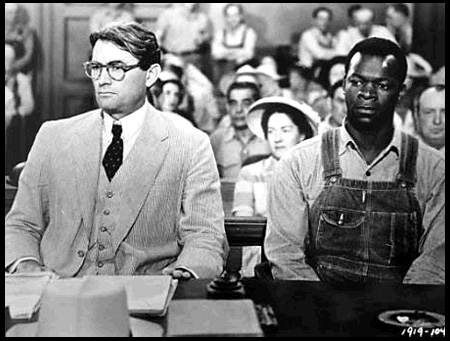
Hollywood taught me about Democracy
Jesse Brown reported a very scary story How do you say “clueless” in Italian? on his Search Engine site.
Four Google execs may face jail terms because they didn’t pull an offensive video from their site BEFORE anyone complained about it.
Surprisingly, it didn’t seem to be a very big story, yet it is a perfect illustration of the incredible danger facing the internet. There is no way that large busy websites or the ISPs that host them can possibly monitor all of the material that is uploaded to the internet without seriously curtailing what is being uploaded to the internet.
For instance, when logging into Flickr I am told:
“There were 2,710 uploads in the last minute ”
Thousands of people upload images to Flickr every minute. It would take thousands of people to screen those images. If Flickr was forced to hire thousands of people to police the images members upload to the site, suddenly what Clay Shirky calls “ the transaction cost” would stop being nearly nil because the cost to maintain Flickr would skyrocket. It is doubtful that Flickr or YouTube or any other wildly successful website could cope with this without going bust.
Wikipedia, for example, has many people all over the world contributing articles and changing other people’s articles all the time. You would think that this would result in all kinds of internet vandalism happening. But it doesn’t. Sometimes people make mistakes, and the way Wikipedia works is that other people can fix those mistakes, And they do. And Wikipedia users also correct deliberate misinformation or vandalism. So even if someone attempts to do a bad thing and vandalize wikipedia articles or disseminate misinformation on Wikipedia, Wikipedia is policed by its own editor/users.
As soon as anyone complains to Google, or YouTube, or Flickr about offensive content, the content is taken down. Now, I have to tell you, even though I am not by any means a young pup, in terms of understanding the internet, “I am only an Egg.” The internet we know today didn’t exist twenty years ago.
Like most people, I’ve been busy, so I wasn’t paying very much attention. Every now and then some new toy or gizmo having to do with computers would pop up — like iphones or ebooks or blackberrys. Or some new uber-cool thing like blogging or facebook or twitter or VOIP would suddenly be everywhere. And we can’t forget endless tales and dreams of dot com millionaires. The way the wold works has been changing very very fast. Six months ago I had no idea what Usage Based Billing was. About two months ago I started writing a simple little article explaining the mechanics of how the internet works. It turned out to be incredibly difficult to learn, let alone explain and mushroomed into “the alphabet series”. Simple? No, and the more I learn the more important I realize Net Neutrality is.
So I do understand why most people don’t even realize that this stuff is going on, or even that it matters. But the thing is that the internet has been slowly growing up and becoming more important in the world, and at the same time a much larger force for change. Which is why it is so important that there be Net Neutrality. Because the internet has come so far so fast it is especially important that it not be turned against it’s users.
Alongside Net Neutrality people in this brave new world are also talking about file sharing, “3 Strikes laws” and ACTA. Terms like piracy and theft are being hurled around and “copyright infringement” has been elevated to a near executable offense.
Why now?
It is no secret that governments around the world have been lobbied long and hard by the “copyright lobby” large media corporations, music and movie companies who are attempting to legislate prograss back into the twentieth century and change the way we think. They have been turning their media might into a propoaganda tool of epic proportions. Because of the incredible power that they can bring to bear, copyright laws around the world are being changed to appease these lobbyists.

Hollywood taught me spying on citizens is bad
Copyright law “improvements” enrich the lives of Americans
An inflammatory Chicago Sun Times headline reads Woman arrested for trying to record ‘Twilight’ on digital camera. The article recounts a story about a young woman who is being criminally charged– to the same extent and in the the same way a professional bootlegger would be charged– for recording scenes of her sister’s birthday party at the movies. The video picked up about 4 minutes of movie fragments. This is the equivalent of charging a teenager with one joint as a drug dealer, or the child who swiped a tempting lollipop from the grocery store with grand theft. It is simply not reasonable.
I’ve taken photographs of family and friends on special occasion trips to the movies. I’ve made videotapes of birthday parties. If you make a video of a child’s birthday party and a movie or video game was playing on the TV in the background, you too could be criminally charged. Under ACTA what will happen when you email a copy of this copyright infringing video to Grannie in England? Will she be fined or jailed or will you?
These laws are already absurd. And then… here comes ACTA.
All of the citizens of the world are being deliberately excuded from all ACTA negotiations. President Obama, so recently praised for his commitment to Net Neutrality, believes this to be a matter of National Security.
There is a huge difference between “personal use copying” and “commercial bootlegging” which the copyright lobby is lumping together as “piracy”. This is all a wrongheaded attempt to legislate away progress. Instead of trying to adapt with the technology, the copyright lobby has chosen to pour millions (billions?) into lobbying for this legislation that will not in fact do anything to stop commercial bootlegging. To give the appearance of doing something they instead choose to criminalize the mostly young citizens who are not harming this special interest group. Personally, I would rather see the best and brightest of Canada’s younger generation find themselves in universities rather than jail.
ACTA is bad. Very Very Bad.
Hollywood Influences
Growing up I learned a lot from “Hollywood”.
Like most Canadians of my generation TV and Movies gave me a better understanding of the American legal system than the Canadian.
Hollywood taught me that:
- free enterprise is admirable.
- free speech is important
- individuals have rights
- democracy is good, and good government is responsive to the wishes of the citizens
- communism is bad, because the government spies on its citizens
- a person should be considered innocent until proven guilty
BUT.

Hollywood taught me "innocent until proven guilty"
Apparently that was all just “content”. ACTA makes it pretty clear that Hollywood’s true objective is for governments around the world to:
- suppress free speech,
- shackle their competitors,
- dismantle democracy,
- spy on citizens and
- throw out the rule of law to punish people on the basis of unsubstantiated accusations.
The saddest part is that it isn’t for some misguided ideological reason that they think will improve the world. This is pure greed.
ACTA links
“Canada and its international trading partners each have distinct copyright policies, laws and approaches for addressing the challenges and opportunities of the internet. Canada’s current framework provides strong intellectual property protections and our copyright laws apply in the digital context, including on the internet. Moreover, Canada’s regime for
the protection and enforcement of intellectual property rights is fully consistent with its international obligations.”
— The Honourable Tony Clement, The Hill Times – Canada’s Politics and Government Newsweekly
YET.
Somehow Canada continues to participate in the secret ACTA treaty negotiations.
“Secret ACTA negotiations would criminalize Canadian internet use” says New Democrat Digital Issues Critic Charlie Angus, who demanded that Tony Clement reveal the ACTA negotiation mandate letter. Tony Clement Responds To Concerns That ACTA Will Circumvent Canadian Copyright Law
Ambassador Kirk: People would be “walking away from the table” if the ACTA text is made public . Maybe that is what should be happening.
Russell McOrmond tells us about:
Word manipulation, hypocrisy, and the so-called Anti-Counterfeiting Trade Agreement (ACTA) in it world.
Bytestyle TV’s Shelly Roche tells us a few things about ACTA, including the fact that it is being undertaken as an executive order, and therefore will not require ratification by the U.S. Congress. If it’s any consolation, American citizens are being kept just as much in the dark as Canadians, and, well, every other country in the world. ACTA: Internet Users Guilty Until Proven Innocent and ACTA: Will Corporate-Run US Government Destroy the Internet?
The Electronic Freedom Foundation Senator Bayh Responds on ACTA illustrates just how badly informed Americans (including Senators) are about ACTA.
Fortunately all Senators weren’t created equal. Senators blast Obama’s secret trade talks as Fox head calls for ‘3 strikes’
Where Paolo Brini passed along the news that the ACTA “negotiations now are not compliant with the Lisbon Treaty, which has come into force the 1st of December” EU negotiators show too many incompatibilities between ACTA and EU laws and Telecoms Package: 3-strikes forbidden in Europe He says further that “The agreement between the Council and the Parliament led to a new amendment which clearly forbids 3-strikes, in the sense meant by ACTA, and restrictions to fundamental rights without following very precise parameters (not respected by ACTA).”
Jamie Love’s blast from the past: Seven Secret ACTA documents from 2008 which includes the link to a PDF of the “Canada Non-Paper on institutional issues under the Agreement” is then discussed in Howard Knopf’s EXCESS COPYRIGHT: Canadian Proposal for ACTA Secretariat
Wired Magazine weighs in with the Threat Level column: Privacy, Crime and Security Online Report: U.S. Fears Public Scrutiny Would Scuttle IP Treaty Talks
New Zealand would like to know: Dunne: What are we signing up to, Mr Power? – 4 December 2009
Last week on BoingBoing Cory Doctorow passed along Javier “Barrapunto” Candeira’s information on the Spanish activists issue manifesto on the rights of Internet users which was created to battle the proposed suspension of due process “in the name of ‘safeguarding Intellectual Property Laws against Internet Piracy.”
1 .- Copyright should not be placed above citizens’ fundamental rights to privacy, security, presumption of innocence, effective judicial protection and freedom of expression.
2 .- Suspension of fundamental rights is and must remain an exclusive competence of judges. This blueprint, contrary to the provisions of Article 20.5 of the Spanish Constitution, places in the hands of the executive the power to keep Spanish citizens from accessing certain websites.
3 .- The proposed laws would create legal uncertainty across Spanish IT companies, damaging one of the few areas of development and future of our economy, hindering the creation of startups, introducing barriers to competition and slowing down its international projection.
4 .- The proposed laws threaten creativity and hinder cultural development. The Internet and new technologies have democratized the creation and publication of all types of content, which no longer depends on an old small industry but on multiple and different sources.
5 .- Authors, like all workers, are entitled to live out of their creative ideas, business models and activities linked to their creations. Trying to hold an obsolete industry with legislative changes is neither fair nor realistic. If their business model was based on controlling copies of any creation and this is not possible any more on the Internet, they should look for a new business model.
6 .- We believe that cultural industries need modern, effective, credible and affordable alternatives to survive. They also need to adapt to new social practices.
7 .- The Internet should be free and not have any interference from groups that seek to perpetuate obsolete business models and stop the free flow of human knowledge.
8 .- We ask the Government to guarantee net neutrality in Spain, as it will act as a framework in which a sustainable economy may develop.
9 .- We propose a real reform of intellectual property rights in order to ensure a society of knowledge, promote the public domain and limit abuses from copyright organizations.
10 .- In a democracy, laws and their amendments should only be adopted after a timely public debate and consultation with all involved parties. Legislative changes affecting fundamental rights can only be made in a Constitutional law.
The Spanish government withdrew the draft law that would have legalized punishment without due process.
Spanish Blogroll:
[this is only a smattering of the websites bearing the manifesto… a Google search shows “de aproximadamente 351,000 de manifiesto en defensa de los derechos fundamentales en internet”]
- http://www.blogbuscadores.com/1133/manifiesto-%E2%80%9Cen-defensa-de-los-derechos-fundamentales-en-internet%E2%80%9D/
- http://www.escolar.net/MT/archives/2009/12/manifiesto-en-defensa-de-los-derechos-fundamentales-en-internet.html
- http://www.facebook.com/group.php?gid=186879394498
- http://www.microsiervos.com/archivo/internet/en-defensa-de-los-derechos-fundamentales-en-internet.html
- http://alt1040.com/2009/12/manifiesto-en-defensa-de-los-derechos-fundamentales-en-internet
- http://mangasverdes.es/2009/12/02/manifiesto-en-defensa-de-los-derechos-fundamentales-en-internet/
- http://www.kriptopolis.org/defensa-derechos-internet
- http://ciberderechos.barrapunto.com/article.pl?sid=09/12/02/086200&from=rss
- http://gallir.wordpress.com/2009/12/02/manifiesto-en-defensa-de-los-derechos-fundamentales-en-internet/
- http://www.nicobour.com/2009/12/07/manifiesto-en-defensa-de-los-derechos-fundamentales-en-internet/
- http://www.juanmarketing.com/manifiesto-derechos-internet/2009/12/07/
- http://www.scriptor.org/2009/12/manifiesto-en-defensa-de-los-derechos-fundamentales-en-internet.html
- http://bu2on.blogspot.com/2009/12/manifiesto-en-defensa-de-los-derechos.html
- http://freakdimensions.blogspot.com/2009/12/manifiesto-en-defensa-de-los-derechos.html
- http://nachovegas.blogspot.com/2009/12/manifiesto-en-defensa-de-los-derechos.html
- http://www.futboldelux.com/2009/12/05/manifiesto-en-defensa-de-los-derechos-fundamentales-en-internet/
- http://www.softwarelibre.net/manifiesto_en_defensa_de_los_derechos_fundamentales_de_internet_i_ii
- http://www.mariallopis.com/2009/12/07/manifiesto-en-defensa-de-los-derechos-fundamentales-en-internet/
- http://swlibre-annapon.blogspot.com/2009/12/manifiesto-en-defensa-de-los-derechos_07.html
- http://lamazmorradecuco.blogspot.com/2009/12/manifiesto-en-defensa-de-los-derechos.html
- http://www.decemuladores.com/foros/noticias/29519-manifiesto-en-defensa-de-los-derechos-fundamentales-en-internet.html
- http://www.economiasolidaria.org/documentos/manifiesto_en_defensa_de_los_derechos_fundamentales_en_internet
- http://gamebyte.es/literaturizate/manifiesto-en-defensa-de-los-derechos-fundamentales-en-internet/
- http://periodistas21.blogspot.com/2009/12/en-defensa-de-los-derechos.html
and the list goes on….
Bravo Spain.
Talk about this.
And please, contact your MP, Prime Minister Harper as well as the Honourable Ministers Clement and Moore.
Because ACTA is bad. Very very bad.
STOP Usage Based Billing



 windows7sins.org
windows7sins.org

